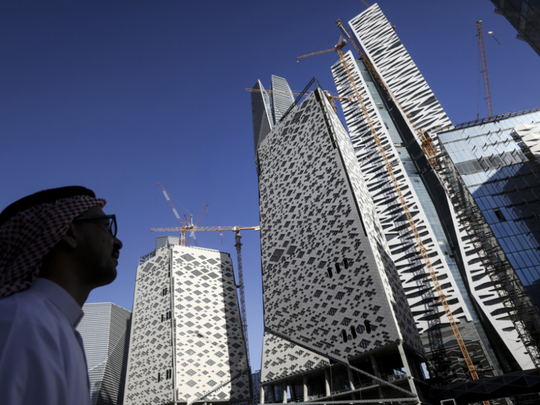
Last year, King Salman Bin Abdul Aziz of Saudi Arabia had emphasised the kingdom’s unflinching commitment in protecting human rights, in line with Sharia. He was speaking before an audience that included the president of the Saudi Human Rights Commission, the president of the National Society for Human Rights (NSHR), and a number of other senior officials and members of the judiciary.
The Custodian of the Two Holy Mosques made it clear that no discrimination between citizens and residents, as far as the law of the land was concerned, would be tolerated.
“The foundation of the state is based on adherence to the Islamic Sharia, which calls for the protection of human rights. The rule of our country was established on the basis of justice, consultation and equality. The state’s systems are integrated into protection of rights, achievement of justice, guaranteeing freedom of expression, impartiality and addressing the causes and reasons of division,” he said.
With expatriate residents numbering well over 12 million, it was significant when the king added that the Saudi judiciary was in the forefront of the government bodies concerned with the protection and privilege of human rights.
“The kingdom’s regulations have emphasised the independence of the judiciary that guarantees justice for all citizens and residents. Out of the keenness to protect human rights within the framework of the Islamic Sharia, the state has established the Human Rights Commission,” he said.
His candid statements were music to the ears of many expatriates who have felt that they were often at the receiving end of all ills befalling the kingdom. One such resident said: “I really appreciate the statement of the king in these hard times. Islam and the teachings of the Prophet (PBUH) do not teach discrimination. As long as we follow the teachings of our beloved Prophet (PBUH) we can live in peace and prosperity.”
A Saudi-born expatriate added: “We, the expat children born and raised in the kingdom, have the strongest bonds with the kingdom. For us, the kingdom is home as we have spent our entire lives here. We, the children of this kingdom, have a hope that one day, we can be called citizens of this country! The king’s statements give us a glimmer of hope. Long live the kingdom, long live our King Salman. This really would be a dream-come-true!”
The Saudi media over the years had not been kind enough to the presence of expatriates in the land, and had often generalised them as money-hungry carpetbaggers or criminals — unfair tags maligning countless generations of expatriates who have unflinchingly submitted their body, sweat and blood towards the building of the country.
Such allegations are far from the truth, though. The reality is that millions have come and gone, and millions still remain in Saudi Arabia today, some alone and distant from their families, tasked with the duties of helping make the country function. Many perform their duties, mostly in silence. Their isolation and loneliness in a far-off land cannot be simply compensated by the riyals they earn.
Leaving behind their parents, siblings, wives and children, these expatriates who reside amongst the nationals ask little of them as they fulfil their duties. And yet, they love and feel like the rest of us; their joys and pains are not alien to them.
Rather than attack them, abuse, or deprive them of their rights, let us treat and honour them like the way we would treat our own people. Let us thank them and wish them well as we would our near and dear ones. Let us thank expatriates of all faiths for the difficult sacrifices they are making daily in leaving their loved ones behind and coming to a foreign country, often under great duress, to help us all make our country a better place. They continue with their toil, expecting very little gratitude in return.
The Saudi king’s message was very clear and covered this segment of the residents of the country. Let us begin by ensuring that their rights are protected and dispensed with in keeping with the true spirit of Islam.
The Prophet (PBUH) said: “The merciful ones will be shown mercy by the all-Merciful (Allah). Be merciful to those on Earth, Allah will be merciful to you ... Allah will continue to help the servant as long as the servant is helping his brother.”
This compassion extends to our obligations towards our guest workers and the protection of their rights.
Tariq A. Al Maeena is a Saudi socio-political commentator. He lives in Jeddah. You can follow him on Twitter at www.twitter.com/@talmaeena.









